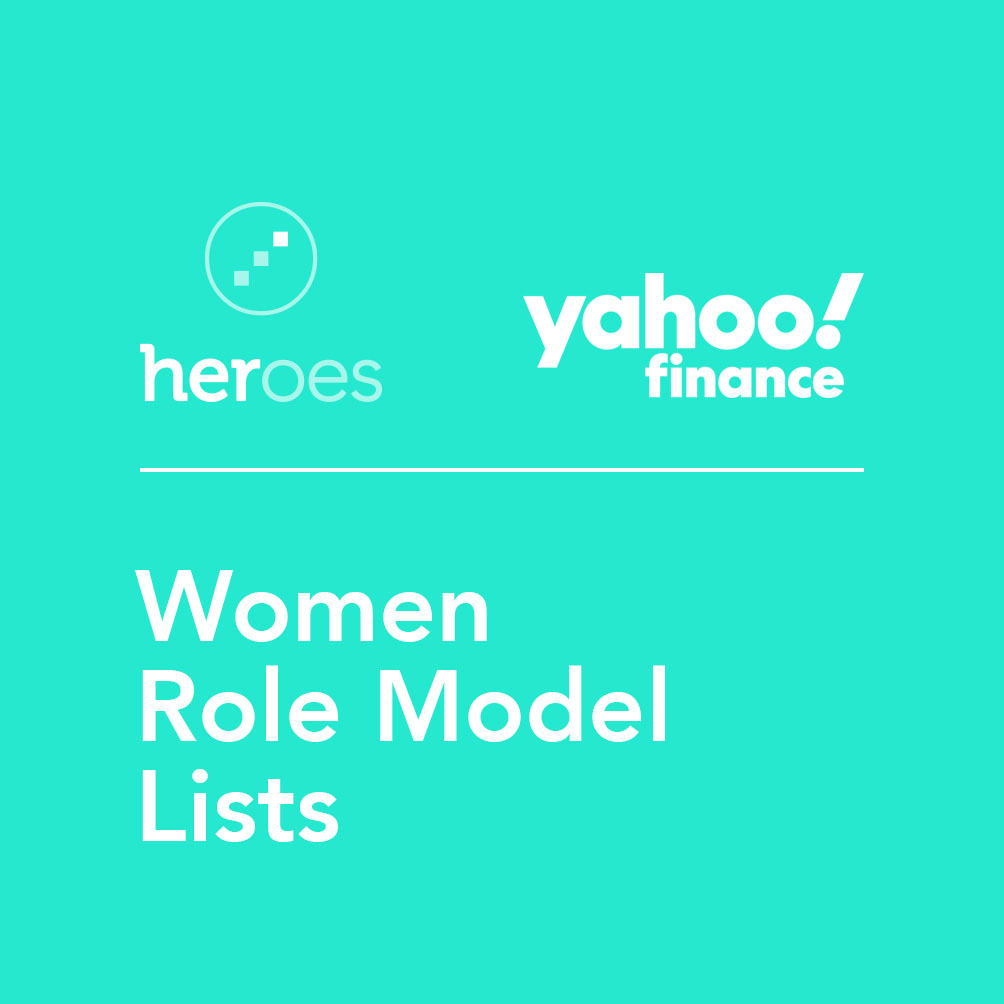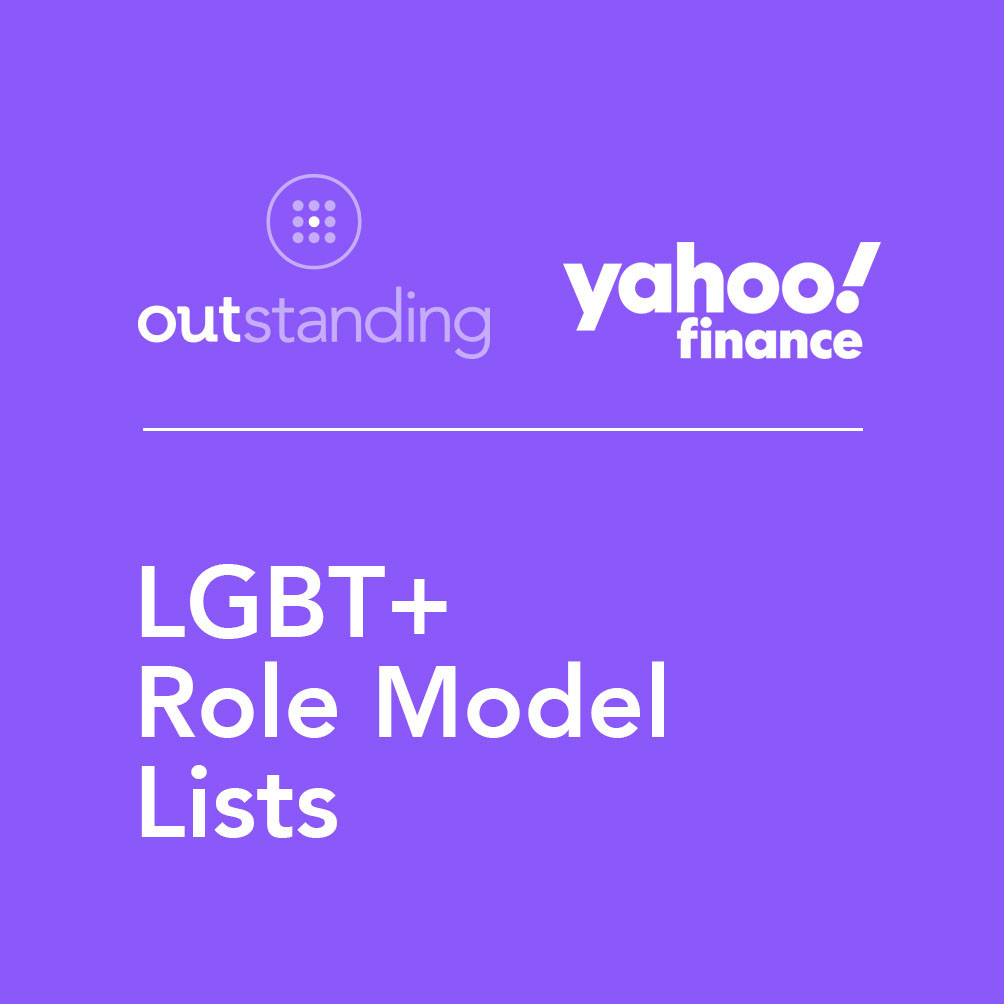UK
Diversity and Inclusion Manager – Slaughter and May
Justina has a wealth of experience working within professional services, first starting out in finance before moving into Law. She is passionate about driving change within the sector and ensuring that is open and accessible to everyone. As a member of the Steering committee for Slaughter and May’s ethnicity and social mobility network, DIVERSE, Justina has led on a number of inclusion initiatives for ethnically diverse employees.
In a nutshell, please tell us a little about your career journey until this point.
Where do I start? So I have been working in professional services throughout my career and over twelve of those years have been spent in law firms. They have ranged from high street firms, mid-tier specialist firms, global firms and magic circle firms. Initially I started my career in finance, before moving into business development and marketing, and most recently diversity and inclusion (D&I).
You might be thinking they’re all quite varied and different roles. And, yes, they are but with many transferable skills and rich experiences which have led me to a career where I believe I am living out my calling. That’s a really amazing feeling. For many years I’ve been an active member of Slaughter and May’s DIVERSE network which aims to increase and promote social, ethnic and racial diversity at the firm, but I never thought of moving into D&I full time. That was until last year, having been on secondment to the D&I team for a few months. I remember having a very frank conversation with my boss at the time in the business development team saying “this is not me positioning myself to move into D&I full time, I love my role in business development and will definitely be coming back”. So what changed? I was in a very fortunate position where I was doing a role I really loved as a Business Development Manager for the Africa practice and other jurisdictions, but at the same time was really keen to further support the firm and the legal sector in making meaningful change in diversity and inclusion. After four years in my role as a Business Development Manager I made the difficult decision to say goodbye to my much loved role and team, and hello to D&I – wow what a ride it has been so far and I can confidently say I haven’t looked back!
“I am grateful for those “firsts” who regardless of not seeing people like them broke glass ceilings, achieved success and are now role models to many.”
Who is your role model and why?
I am sure this might sound like a cliché but my mother is my role model. She has and continues to show me that you can achieve whatever you want regardless of the adversity that comes along the way. My mum had a stroke when I was 17 and she was 37; despite life changing overnight and becoming very different and difficult to the one she had planned, I have seen her continue to live with optimism, resilience and a love for life, which I so much admire. “Success is defined by you”
Professionally, I have been very fortunate to have crossed paths with many incredible individuals. When I joined Slaughter and May I was interviewed by Ngozie Azu and Nigel Boardman – they both not only opened the door for me, but have supported me and been mentors and role models over the years. Firstly Ngozie, as my boss, she supported my development and that includes speaking some hard truths to me but also being one of my biggest champions. She probably doesn’t realise, she has also been an amazing role model. When you work in an industry where you are a minority and you are fortunate to come across someone who looks like you in a more senior position and is unapologetically themselves and also amazing at what they do, it’s a real privilege (it shouldn’t be) to be able to work in close proximity to them.
It has also been really great to have Nigel who is from a different background and generation, provide me with unwavering advice and guidance over the years. There is value in having mentors where you have things in common, but there is something special when someone who comes from a completely different walk of life and takes a genuine interest in you and your career.
I have great admiration for those who have continued to advocate the importance of diversity and inclusion in the workplace for many years when it’s been unpopular to do so. My current boss Uzma Hamid-Dizier is certainly one of those individuals, who over the years has been constantly committed to change and empowering others to do better. I am honoured to be working alongside her on such important subject matter.
What did you want to be when you were growing up?
A lawyer, I was often encouraged by family and friend that I would make a good one. I was never afraid to challenge and stand up for what I felt was right even if that meant I was standing alone – and that hasn’t changed. I also loved a good debate. Whilst I never ended up as a lawyer, I’ve spent my entire career surrounded by them and now have the opportunity to champion diversity and inclusion so I didn’t end up too far off!
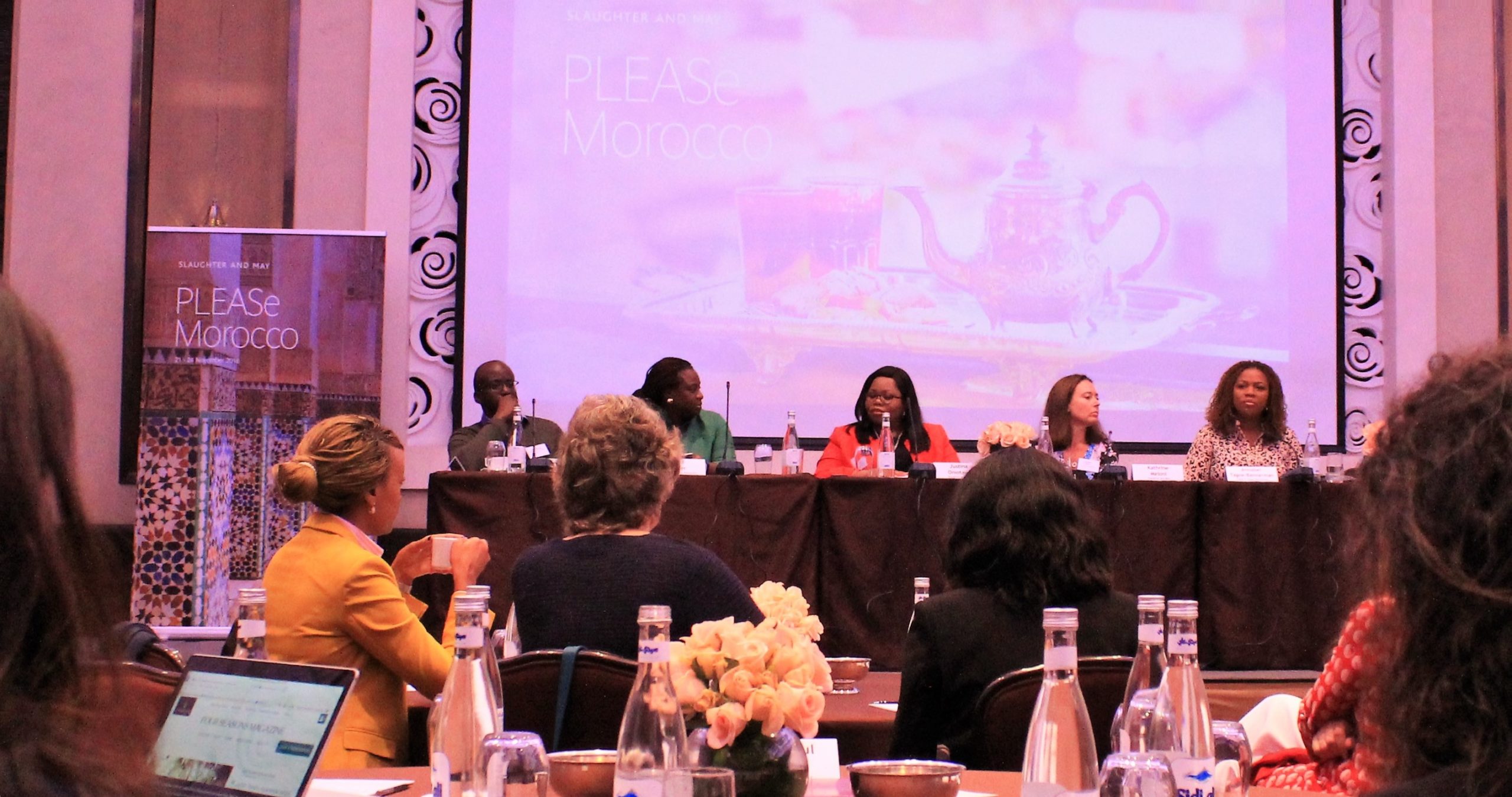
What’s the biggest risk you’ve ever taken, and what’s your greatest career achievement?
The biggest risk I have taken is joining Slaughter and May full time, whilst in the middle of undertaking my masters degree in Business Innovation and Entrepreneurship. The masters was full time evening classes and I was thrilled to be awarded a distinction in my dissertation.
“Success is defined by you.”
What would you tell your 18-year-old self if they could see you now?
If your mind can conceive it and your heart can believe it, then you can achieve it. So don’t limit yourself, dream big!
How has your personal journey informed the way you navigate your career?
Being a young parent and a carer to my mother meant that my career to date has been far from the traditional path. I took a career break to finish the final year of my undergraduate degree and settle my daughter in to her first year of school. Some years later into my career I did my masters full time in the evenings whilst working full time during the day. These experiences have allowed me to be more agile in a dynamic and fast-paced work environment and adjust well to change. In my role as diversity and inclusion manager, my personal journey is a reminder that everyone’s path isn’t linear, and most certainly doesn’t disqualify them, but the difference can bring a rich and diverse experience to the workplace.
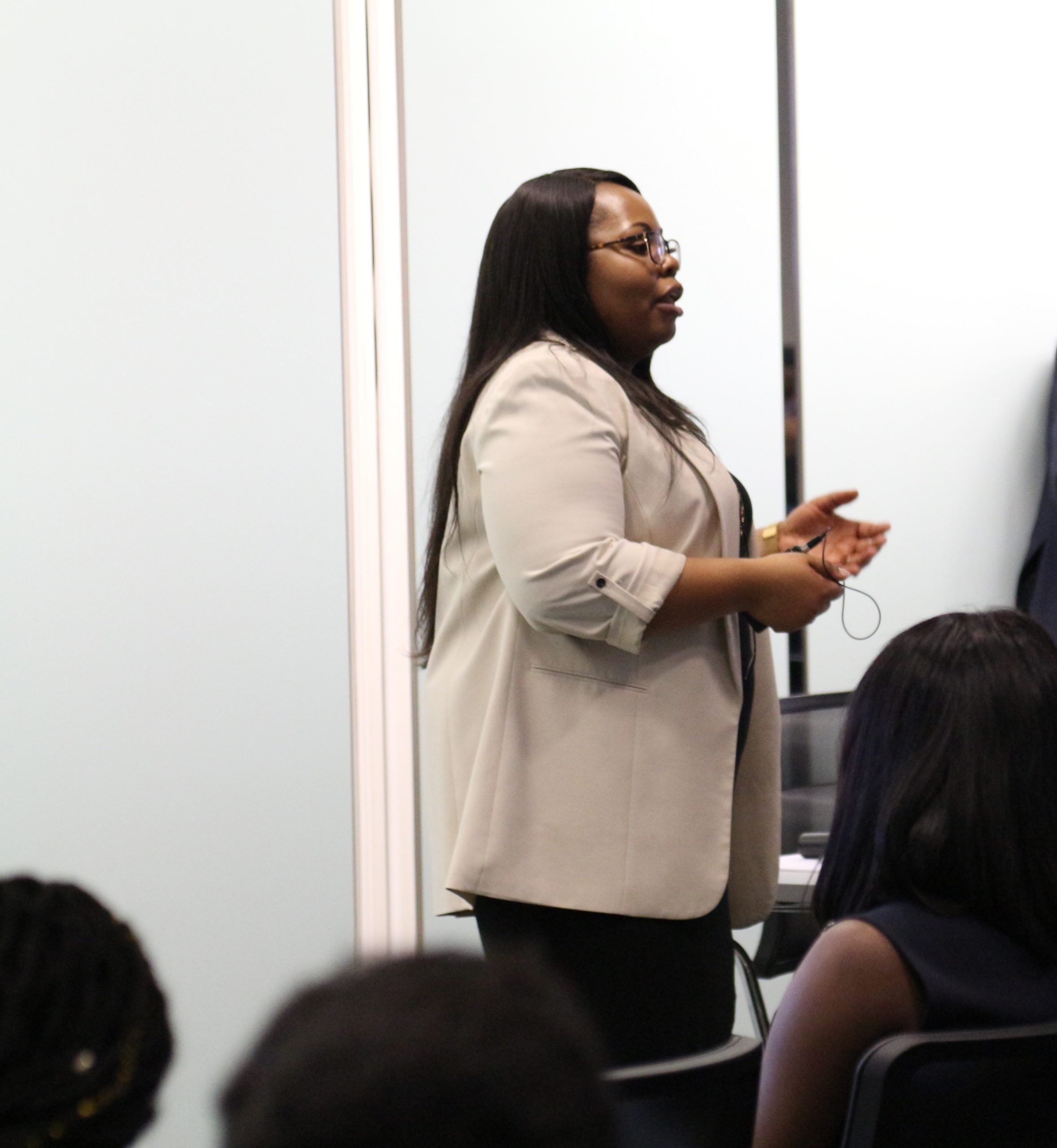
How have your lived experiences helped you in your industry today?
My lived experiences have made me cognisant of the first hand challenges people like me, but also those from other underrepresented groups, face in trying to enter the industry, stay in the industry and progress. The importance of fostering an inclusive culture is so vital; it comprises the actions and behaviours we each do. Yes leaders set the tone but it takes the collective to really create a culture where everyone can be their true self in the workplace. It is this that has led me to mentor and support those entering the world of law and actively engage with my peers and senior leaders to bring about change. We are all in it together.
“My mother has and continues to show me that you can achieve whatever you want regardless of the adversity that comes along the way.”
How has connecting globally with people in other countries influenced your thinking or approach?
In my previous role as a Business Development Manager for Africa, Middle East, Southern, Central and Eastern Europe it meant I was very fortunate over the years to visit several jurisdictions and meet many people from across the globe. It gave me a real appreciation for different cultures, ways of working and doing business. From a sustainability perspective, it also reminded me of the opportunity globalisation has to reduce global inequality.
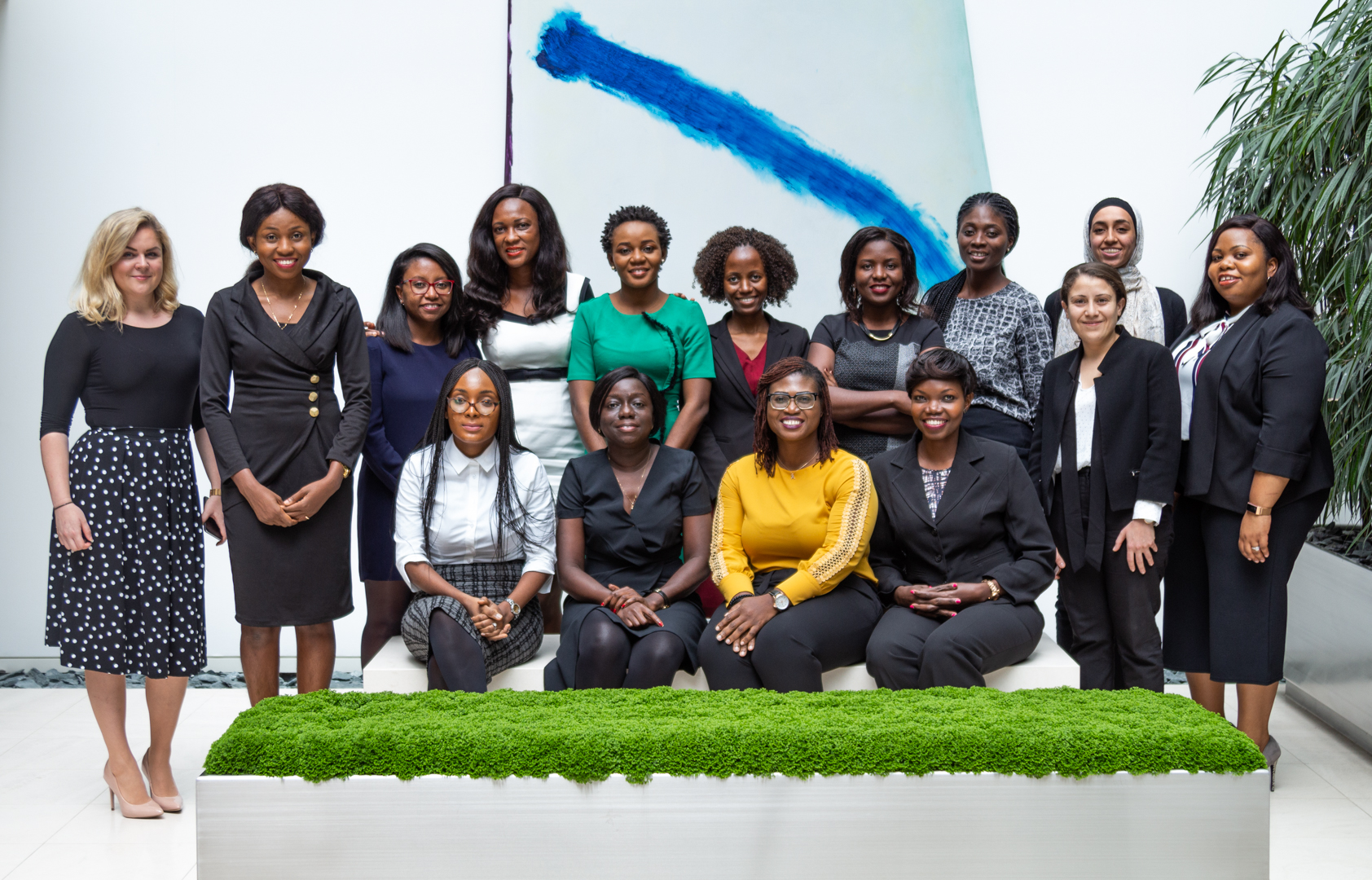
How do you think driving inclusion in your region differs from other parts of the world? Are there unique challenges or opportunities?
In my opinion, we in the UK are in a fortunate position to be able to collect D&I data, use it to evidence issues, track progress, set targets or goals, and share progress with your organisation and others. In many parts of the world collection of this kind of D&I data is illegal and I can imagine this makes it more challenging to clearly measure the scale of the challenge and success of interventions. There is an adage that says “you can’t manage what you can’t measure” and this is crucial when it comes to tackling diversity and inclusion. With the opportunity we have in the UK to collect this data, it is paramount that we continue to be open and transparent about why and how the data is used and fundamentally take action to bring about change.
With all the data both qualitative and quantitative, we should have made more progress over the years to level the playing field for underrepresented groups. I am glad to have seen more progress in the last two years on this but there is still a long way to go. It is vital that we all continue to push for an accelerated change in society.
We often reflect on you can’t be what you can’t see, how far does this resonate with you and your own experiences?
This is true. I am grateful for those “firsts” who regardless of not seeing people like them broke glass ceilings, achieved success and are now role models to many. A word to those, who are yet to see people like them, do not be discouraged and keep being the best version of you – you are enough! Final word to those who perhaps are used to always seeing people like you in the room and at the table, may I encourage you to perhaps think of not lowering the bar but widening the door so we can all be represented.

